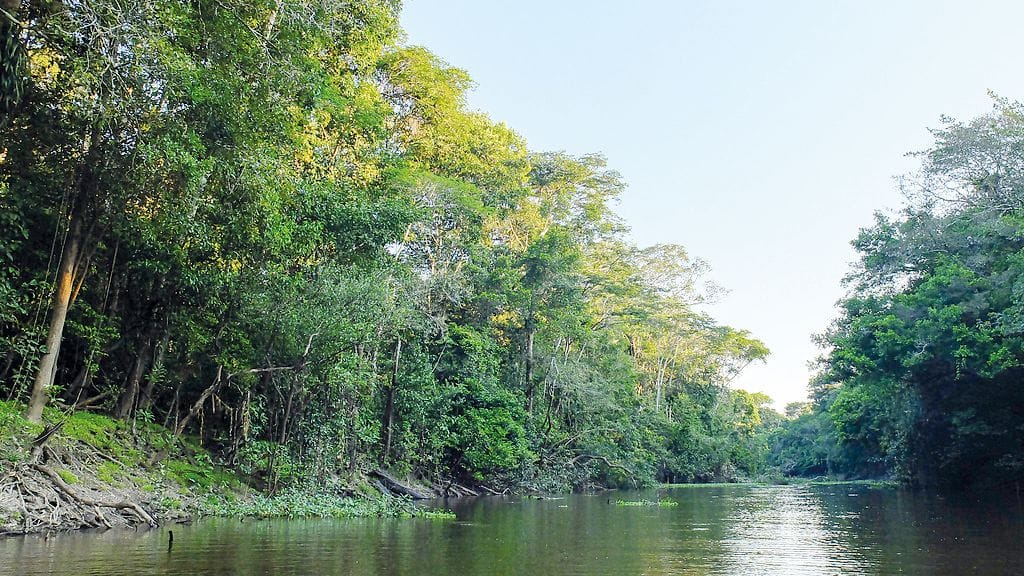Tragedy of the Commons: A Drama That Our Planet Is Not Enjoying
Sustainability Editor Xiuchen Xu highlights the unfortunate link between the economic term and exploitation of the environment

You may have heard of the term tragedy of the commons before, or you may have even studied about it. It is an important economic concept and is extremely relevant to many of the prevailing environmental issues. The problem stems from deep within human nature and is at the heart of corruption and exploitation in this world. This article aims to provide a better understanding of this issue, focusing on the perspective of the environment.
Tragedy of the commons occurs when there are common access resources (CARs), natural resources over which no private ownership has been established due to the difficulty of excluding people from using them. CARs include forests and pastures, fisheries, oil and gas fields, grazing lands, irrigation systems and much more. To examine one example further: with the case of oceans, it can be noted that their bodies of water are so incredibly vast that it is impractical for one fishing company to establish control of an entire ocean and stop others from using it. Economists have hypothesised that with the lack of ownership of resources, private producers will act in their own self interests and exploit common access resources to maximise profit. This exploitation is unsustainable, and will lead to the depletion of resources; this is known as the tragedy of the commons. In other words, common access resources provide an opportunity for individuals to create profit, while spreading negative externalities to everyone else. Indeed, the economist view of humans being completely selfish beings is extreme and grim, however, it seems that this view is correct in the case of humans exploiting CARs.
Tragedy of the commons is at the core of a widespread range of problems that are relevant and threatening to natural resources, environments and human health. In the case of overfishing, fishing companies are not responsible for the state of the ocean, and continue to fish as much as possible to maximise revenue. Today, 90% of fish stocks are depleted. Furthermore, to save on fuel money on their return journies, fishing boats discard their giant heavy nets into the ocean, which has accumulated to account for 50% of ocean plastics. These nets, known as “ghost nets”, cause many animals to become entrapped in them and die.
Trawling is the practice of dragging large fishing nets across the ocean floor, which is extremely damaging to marine habitat. Due to the number of animals unintentionally getting caught in massive fishing nets, there is a horrific practice of discarding the unintentionally caught animals back into the ocean, even if they’re dead. From the point of view of a single fisher, this is just what they have to do in order to be offered competitive prices on the market and compete with corporations engaed in unethical business practices.
Another important resource is forests. For example, the Amazon is considered to be the lungs of the planet, but is currently being exploited and deliberately burnt down to make land for cattle farming. In August alone, there were 30,000 fires in the Amazon, showing the horrific nature of cooperate greed and extreme consequences of resource exploitation.

Clean air can be considered a common access resource too, as everyone have equal access. So, unless you choke someone (non-consensually, which is very illegal), you can’t exclude someone from air. Companies have no incentive of protecting clean air, and will pollute as much as they want for their own gain. The same is happening with many clean freshwater resources, which is being polluted at alarming rates.
The same concept also extends to the problem of antibiotic resistance. This is not a physical resource, but abusing the use of antibiotics is profitable for farmers to boost production and increase their number of livestock. This abuse leads to antibiotic resistant superbugs for which the consequences are suffered by all of humanity. Indeed, animals in the US consume twice as much antibiotics as humans, this statistic shows just how much antibiotics are misused in the farming industry.
The reason for such a diverse range of problems is because there is an environmental cost for everything. The fact that every resource is limited on this planet, coupled with the rising level of demand for these resources, tragedy of the commons is the outcome. These issues are large-scale and require laws, policies, and international cooperation.
However, governments are not doing their part, focusing instead on profit over protecting the planet. For example, the far-right president of Brazil, Bolsonaro encouraged the exploitation of the Amazon. As part of his campaign, he promised to fundamentally subvert the country’s long-standing commitment to protect the Amazon. He encouraged and fuelled the Amazon fires, threatened indigenous communities, and is currently trying to shift the blame of the Amazon fires onto NGOs and Leonardo Di Caprio (how dare he?). The tyranny of Bolsonaro has been particularly prominent recently, with the arrests of volunteer firefighters and others who are trying to protect the Amazon.
Current regulations for the forementioned issues do not come close to opposing the threats they pose to our planet. Indeed, there are laws and regulations for fishing, but they are badly implemented, and the UK government has not done as much work as NGOs such as Greenpeace to investigate the practices of the fishing industry. Currently, there is a fishing quota, but young cods are still being illegally discarded on an industrial scale (to make space for other more profitable catches), with the result of legal catches in UK seas likely to have been exceeded by one-third. The government also claims that 36% of England’s waters are “safeguarded as marine protected areas”. However, a recent paper in the Science journal found that the trawling intensity in European protected areas is actually higher than in unprotected places. Thus, the claims of the government are to deceive the public into believing that something is being done, while in reality, (surprise, surprise) they do nothing.
Another interesting thing to note is that those industries actually benefit very few people, and is not providing as much for the average person. Greenpeace discovered that 29% of the UK’s fishing quota is owned by only five families, all of whom feature on the Sunday Times Rich List. The meat industry is also quite monopolised, with almost all meat coming from 4 companies in the US; it is likely that the companies not only exploit animals, but also their workers, and the money ends up going to the people at the top.
As members of society, we can refrain from buying products that are contributing towards resource depletion and global pollution. This includes beef (and other animal products) which is the main cause of deforestation. British beef, which often uses soy feed imported from Brazil has huge amounts of carbon emissions. We can also choose to stop eating fish to stop contributing to the demand for an industry that is killing our oceans. There are alternatives to eating beef and fish: many fish and chips shops in London have actually converted to being fully plant-based and as for beef, there have been businesses such as Impossible Foods Inc and Beyond Meat that provide alternatives. These companies have generated immense interest, with Beyond Meat having the world’s biggest IPO pop since 2000. Consumer choices really matter, as one person’s actions often influence those around them, a snowball effect occurs. As new ethical consumer trends are created, unethical companies become less competitive on the market.
There is also an urgent need for governments to act, as this issue needs to be targeted on an international scale in many cases. We need to spread awareness of the issues of tragedy of the commons, as governments are more than happy to ignore them, since GDP and profit is all they care about. We need to sign petitions (currently paused for general elections, but do sign them later), join protests, and have our demands heard. Without regulation, businesses and producers will always act in their own self-interests, and their selfish decisions will lead to horrific environmental consequences that harm everyone else. For the government, there are two main ways of combatting the problem: they can either assign ownership and enforce that so the producers take into account the long-term sustainability of their businesses, or the government can enforce regulations, quotas and laws better. It is atrocious that governments are currently doing nothing. Protecting common access resources and preventing tragedy of the commons is an important initiative, and governments must act now.
It is not impossible to correct the problem of common access resources. In the past, when the ozone layer was depleted due to the use of CFCs as refrigerants, international agreements, laws and regulations were put into place to combat this problem, and the ozone has started to recover. Right now, there is an urgent need for governments to do the same thing with all the issues mentioned in this article. We are on the brink of mass extinctions, and we are at a point of no return. As citizens, we can all play our part in pressuring the government and reducing demand for unethical industries. If we all work together, maybe we can stop catastrophic tragedy of the commons before it is too late.







